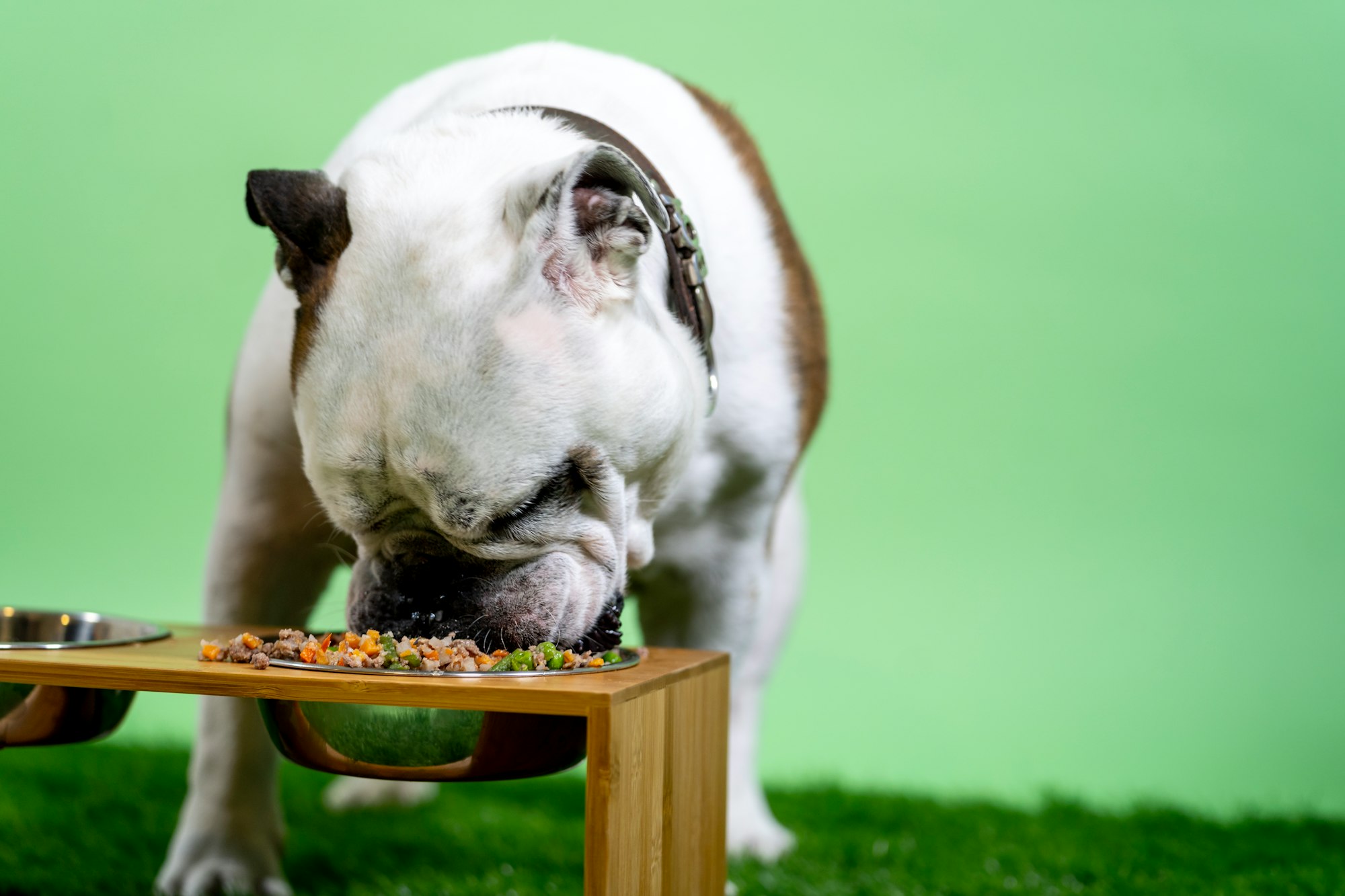"Canine Cucumber Cravings" might sound a bit peculiar at first. After all, our furry friends are often associated with gnawing on a juicy bone rather than munching on green veggies. However, a surprising number of dog owners have noticed a rather unexpected interest in their pets - a fondness for the refreshing, cool cucumber. This article unveils dogs' relationship with this refreshing veggie, revealing why they might crave it, and discussing whether cucumbers should form a part of a healthy canine diet.
Can Dogs Eat Cucumbers?
Let's get the most crucial question out of the way - can dogs eat cucumbers? The answer is a resounding yes. Cucumbers are safe for dogs to consume and can actually offer some health benefits. They're low in fat and oils, meaning they're easy on the stomach and won't contribute to weight gain. This is a stark contrast to many commercial dog treats, which often contain unnecessary fats and sugars.
Cucumber: The Healthy Dog Treat
Veterinary professionals often stress how often vet visits should include discussions about diet and nutrition. Cucumbers, due to their low calorie and high water content, serve as a great alternative to regular dog treats. They can be used as a light reward during training sessions, or even just as a crunchy snack to munch on throughout the day. Not to mention, the crunchiness of cucumbers can also contribute to oral health by helping to clean your dog's teeth.
Canine Diet and Cucumbers
Despite the benefits, it's essential to remember that cucumbers should not replace a balanced, meat-based diet, but can certainly complement it. Cucumbers are a refreshing veggie full of vitamins and minerals but they lack the protein and fats dogs need to thrive. Always consult your vet before making significant changes to your dog's diet.

Play, Exercise, and Cucumbers
Ever heard of a flirt pole? It's a type of exercise tool for dogs that encourages them to chase a lure, thus getting a good run in. Well, you can actually incorporate cucumbers into these fun exercises too. Tie a cucumber slice to your flirt pole and watch as your dog bounds after it, providing both physical exercise and a tantalizing reward at the end.
Similarly, puzzle toys are an excellent way to keep your dog mentally stimulated while providing a tasty treat. Try stuffing a puzzle toy with cucumber slices for a low-calorie reward that will keep your dog occupied.
How Much Exercise and How Many Cucumbers?
The key to a healthy dog is a balanced lifestyle, and that includes how much exercise they get and what they eat. While cucumbers can be a refreshing snack for your pooch, moderation is essential. Too much of anything - even cucumbers - can be bad.
Cucumbers, as with any new food, should be introduced gradually. Start with small pieces and monitor your dog for any allergic reactions. Yes, it's true, dogs can have allergies too, and it's essential to be vigilant.
Dogs and Microchip Technology
In the modern world, we also need to consider non-dietary aspects of canine health, such as the implementation of a microchip. This technology is an essential tool in ensuring the safety of your pet. If your dog ever goes missing, the microchip will provide all the necessary information to get them safely back home.
While a microchip might not seem relevant in an article about canine cucumber cravings, it emphasizes the need for a holistic approach to pet care. While cucumbers might be a healthy treat, taking care of your dog involves much morethan simply feeding them well.
Canine Cucumber Cravings: An Unusual Love?
Dogs are known for their eclectic tastes. If you've ever turned your back for a moment only to find your sandwich mysteriously missing, you'll know what we're talking about. But cucumbers? Yes, it seems that many dogs have a curious fondness for this refreshing green veggie.
If you've noticed your dog's peculiar interest in cucumbers, you might be wondering what's driving this strange dietary desire. Could it be the crunch? The refreshing taste? Or perhaps they just enjoy the novelty of this unusual treat?
The Appeal of the Crunch
One theory is that dogs are attracted to the satisfying crunch of cucumbers. Just like humans, dogs experience food with all their senses, and the texture is a big part of that. Crunchy foods like cucumbers provide sensory stimulation for dogs, and many find the experience of chomping down on a crispy cucumber thoroughly enjoyable.
A Refreshing Change
Another theory behind canine cucumber cravings revolves around their refreshing taste. Dogs can get hot and bothered, especially after vigorous exercise or during warmer weather. In such situations, a cool slice of cucumber can provide a refreshing respite, helping them to cool down and rehydrate.
A Novel Experience
Finally, it could just be the novelty factor. Dogs are curious creatures, and they love to explore new tastes and textures. If cucumbers are something different from their usual diet, they might just enjoy the variety they bring.

The Art of Moderation
As with any aspect of canine care, moderation is key when it comes to feeding your dog cucumbers. While this refreshing veggie is safe and even beneficial for dogs, it should only make up a small part of their overall diet.
It's also important to remember that every dog is an individual, with their own unique dietary needs and preferences. Just because some dogs love cucumbers doesn't mean all dogs will. Always take your dog's individual needs and reactions into account when introducing any new food.
Cucumbers: An Unexpected Ingredient in Canine Diet?
Who would have thought that cucumbers, a seemingly mundane garden vegetable, could find such an enthusiastic audience in our canine companions? Indeed, cucumbers might not be the first thing that comes to mind when you think about dog treats. But as we've seen, many dogs find these green veggies irresistibly refreshing.
Offering Hydration and Nutrients
Cucumbers are over 90% water, which makes them an excellent source of hydration for your dog, especially during the hot summer months. Additionally, cucumbers contain essential vitamins and minerals like vitamin K, vitamin C, and potassium, which can contribute to overall canine health. However, it's important to remember that these nutrients are present in relatively small amounts, so cucumbers shouldn't be relied upon as a primary source of nutrition.
Using Cucumbers in Training
One of the great things about cucumbers is that they can be cut into small, manageable pieces, perfect for using as rewards during training sessions. If you're trying to teach your dog a new trick or command, consider using pieces of cucumber as a low-calorie reward. Your dog will love the crunch, and you'll love the fact that you're not loading them up on high-calorie commercial treats.
Precautions While Feeding Cucumbers to Dogs
As with any food, there are a few precautions to take when feeding cucumbers to dogs. First, make sure to wash the cucumber thoroughly to remove any pesticides. It's also a good idea to peel the cucumber, as the skin can be tough for dogs to digest. And remember to cut the cucumber into small, bite-sized pieces to prevent choking.
A Story of Balance and Care
In conclusion, the tale of canine cucumber cravings is a testament to the diverse tastes of our furry friends and their willingness to try new foods. It's a story of finding healthy, refreshing treats that our dogs love, and of understanding their dietary needs and preferences. But it's also a reminder of the importance of balance and moderation in canine nutrition, and of taking a holistic approach to our dogs' health and wellbeing.
So, whether your dog is a cucumber connoisseur or a meat-lover through and through, we hope this article has given you some valuable insights into the world of canine nutrition. And who knows? Maybe next time you're making a salad, you might just find yourself setting aside a slice or two of cucumber for your four-legged friend. After all, as we've seen, many dogs are part of the canine cucumber craving crew, and they're perfectly okay.
Canine Safety with Fi Dog Collars
While discussing the health and well-being of your dogs, particularly in relation to their fondness for cucumbers, it's crucial to touch on one of the most innovative technologies in canine safety: Fi dog collars.
Fi dog collars, widely renowned for their state-of-the-art technology, work to ensure your dog's security through an impressive GPS tracking system. How does this tie in with our cucumber-loving canines, you may wonder? The connection lies in the overall wellbeing of our furry friends.
Safety During Cucumber-Based Exercises
Remember when we mentioned using cucumbers during play and exercise with tools like the flirt pole? Or incorporating cucumber slices into puzzle toys? These are exciting activities for your dogs, but they also involve a fair amount of movement and, potentially, outdoor time.
This is where the Fi dog collar comes into play. While your canine companion is chasing a cucumber slice on a flirt pole across the yard or park, the Fi collar keeps track of their location, ensuring they're safe. The real-time GPS tracking allows you to monitor your dog's location directly from your smartphone, providing peace of mind even if Fido gets a bit too enthusiastic chasing that cucumber lure!
Promoting an Active Lifestyle
Fi dog collars aren't just about location tracking. They also provide insights into your dog's physical activity levels. When considering how much exercise your dog should get, it's essential to find a balance - just as with their diet and cucumber consumption.
Fi helps by tracking your dog's daily steps, providing useful data that can help you ensure they're getting just the right amount of exercise. Plus, you can compare your dog's activity levels with others of the same breed, helping you understand what's normal and what's not.
A Tool for Holistic Dog Care
In essence, Fi dog collars are about holistic dog care. They provide safety through tracking, promote good health through activity monitoring, and give you a better understanding of your dog's overall wellbeing. Just like understanding the benefits and potential issues of feeding your dog cucumbers, utilizing a Fi collar supports the broader picture of responsible and proactive pet ownership.
So, when you're playing fetch with cucumber slices, training your dog with low-calorie cucumber treats, or even just watching your dog crunch down on a cool cucumber on a hot day, remember that their safety, exercise levels, and overall wellbeing are all interconnected. Tools like the Fi collar can play a vital role in ensuring that your cucumber-loving canine remains happy, healthy, and safe.
Conclusion:
In conclusion, the canine cucumber craving isn't just a quirky trait but a testament to the diverse preferences and the dynamic relationship dogs have with their food and their environment. Feeding cucumbers to dogs can serve multiple purposes, from providing a low-calorie, crunchy treat to a unique tool for training and playtime activities. However, it's essential to consider potential allergies, ensure appropriate portion sizes, and wash and cut the cucumbers properly for safe consumption.
The narrative extends beyond the dietary aspect to embrace a holistic approach to canine care. Regular vet check-ups, a balance of physical activity, mental stimulation with puzzle toys, and safety measures like microchipping constitute integral components of this comprehensive care.
Incorporating innovative technology, such as Fi dog collars, can further enhance this approach. Whether it's keeping tabs on your dog's location during a vigorous cucumber chase, monitoring daily activity levels, or just providing the peace of mind of their safety, Fi collars align seamlessly with this overarching theme of all-round canine wellbeing.
Through all this, understanding canine cucumber cravings sheds light on the delightful idiosyncrasies of our furry friends, and the unique, rewarding journey of ensuring their happiness and health.




